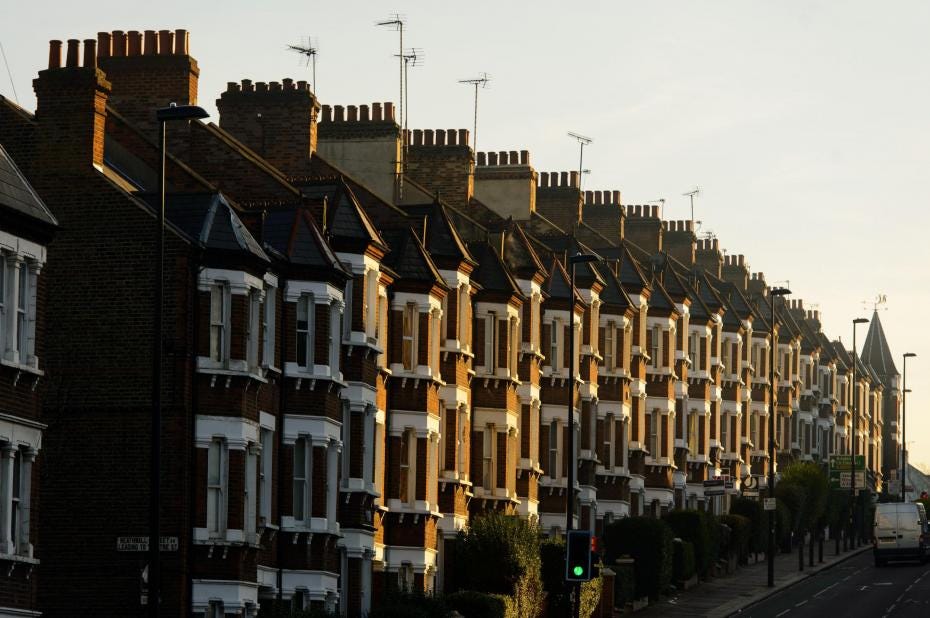2016 was a surprisingly strong year for property.
The latest house price figures from Halifax show that over the year the average value of a home rose from around £208,500 to £222,500 - a 6.5 per cent rise in 12 months, including a 1.7 per cent increase (£3,600 worth) in December alone.
The rate of increase may be down on 2015, but few would have predicted such resilience as Mark Carney, Governor of the Bank of England was warning of a global slowdown in light of worrying data coming out of China back in February. They certainly didn't after the British public voted to leave the EU.
And yet even then within a few short weeks were values did indeed drop towards a 2 per cent contraction as we all held our breath and analysts warned of the mass exodus of European affluents abandoning their London boltholes that would turn a continued 'softening' at the very top of the market into a cascade of downward price pressure.
Indeed, the top performing area wasn't a Knightsbridge postcode or a Berkshire enclave. It was Luton.
The average house price in the Bedfordshire town was almost 20 per cent higher than in the previous year, increasing from £214,934 to £256,636 in 2016 as buyers battling a supply shortage took advantage of relatively low prices and a commutable distance to the capital. Meanwhile, homes in the outer London borough of Barking and Dagenham rose in value by almost 19 per cent in 12 months and Dunstable – Luton’s near neighbour – completed the top three with a near 18 per cent rise.
"People who predicted the worst for the UK property market in the wake of the EU Referendum vote last June have so far been proved wrong," Mario Berti, CEO of Octopus Property remarks.
"While the economic and political backdrop remains uncertain in the wake of Brexit, tight supply, high levels of employment and very low borrowing costs are acting as a floor under prices. Sterling weakness will also continue to attract foreign buyers, again bolstering prices. With both supply and borrowing costs so low, an imminent collapse in house prices looks like a remote risk.
"[P]rices are once again picking up speed slowly and steadily... However this time there’s no reckless acceleration, but rather a smooth and cautious progression though the gears," says Jonathan Hopper, managing director of Garrington Property Finders.
“The chronic imbalance between demand and supply is playing a big part in driving up prices. With [Royal Institution of Chartered Surveyors] data showing that levels of unsold stock remain at a record low, competition among buyers in many areas is rising.
"With interest rates still at record lows, growing numbers of buyers are deciding that now is the time to act – and rising levels of mortgage approvals hint at a surge in purchases to come.
“Despite the momentum, some nerves among sellers remain – and more pragmatic vendors are often willing to reduce their asking price in return for the certainty of a sale.”
But other experts, particularly those who aren't directly involved in such sales, aren't convinced, including Martin Ellis, Halifax's housing economist.
"Slower economic growth, pressure on employment and a squeeze on spending power, together with affordability constraints, are expected to reduce housing demand during 2017.
"UK house prices should, however, continue to be supported by an ongoing shortage of property for sale, low levels of housebuilding, and exceptionally low interest rates.
"Overall, annual house price growth nationally is most likely expected to slow to between one and four per cent by the end of 2017," he adds. "The relatively wide range for the forecast reflects the higher than normal degree of uncertainty regarding the prospects for the UK economy this year."
At the same time others, such as think tank the Resolution Foundation, point to the ongoing divergence between prices and affordability even with a modest increase in 2017. Property prices are currently rising at roughly 5 times the rate of wages as part of a long-term trend that could finally make its presence felt as inflation increases kick in, denting consumer confidence just as the UK finally defines its independent economic future.
It could be quite a year for our precious bricks and mortar.


